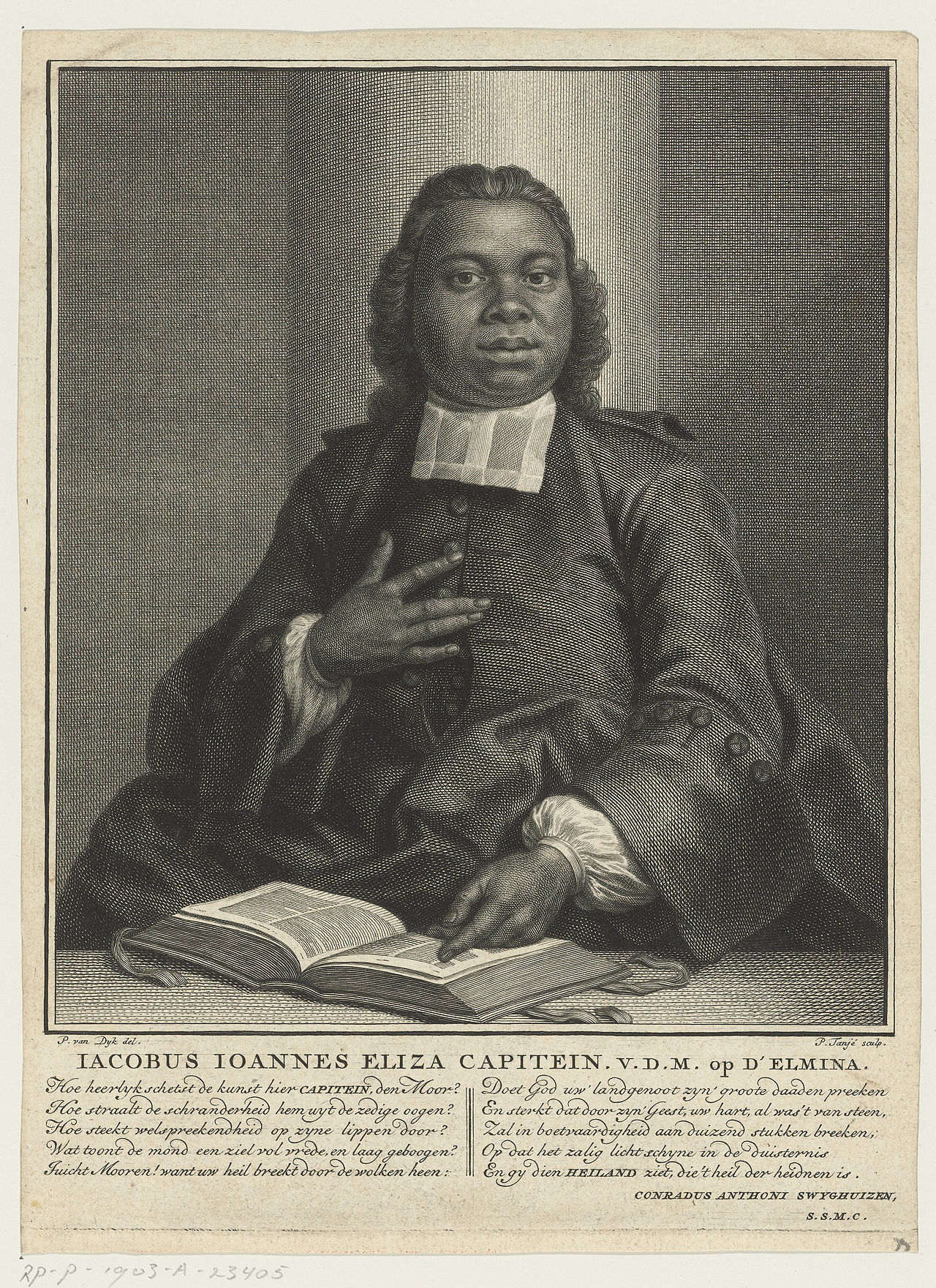Configuration of an 18th century slave ship
In 1725, a young African boy was forcibly removed from his parents' home and shuttled on a ship to sea. This was a common scenario for many: uprooted from their familiar surroundings to a new world and a life they would never imagine. Jacobus Capitein escaped such a fate.
Capitein--whose African name is unknown--was sold as a slave in 1725 to Dutch sea captain Arnold Steenhart. A Dutch West India company trader took a liking to the boy and received him from Steenhart as a gift later that year. The young boy took the first name of the trader and was given the last name Capitein (Dutch for "captain"). The trader, Jacobus van Goch, treated the boy as an adopted son and took him back to Holland, reaching shore on July 25, 1728.
Jacobus Capitein pictured in 1742, at the age of 25
Capitein was a gifted student and was educated at the University of Leiden. He wrote a dissertation defending the institution of slavery, stressing its justification in the Christian faith. He believed that because Christianity justified slavery, one could baptize their slaves without worry. At the age of 20, he returned to Africa to become a missionary for the Dutch Reform Church. Before this time the Dutch Reform Church had little interest evangelizing in Africa as they did not care to convert the "heathen." Capitein returned to Ghana no longer speaking the language, very much a man raised in the Dutch tradition. He was not received as he may have hoped. The Dutch missionaries and traders also detested a black man preaching their gospel. His holier-than-thou attitude did not earn him many friends as he openly opposed the extramarital affairs in which a number of white traders engaged in Africa.
Title page of Capitein's dissertation: "De servitude, libertati christianae non contraria" or "Servitude, Christian Liberty non-Contrary"
Capitein's engagement with the people of Ghana helped him regain his language and at his highest moment in society, he was tasked with educating the sons of the Asantehene, Opoku Ware I. He attempted to send them to Holland for their education but this was forbidden. This predated Kwame Poku and Kwasi Boachi's journey to Holland for their education by a century.
The greatest accomplishment of Capitein's mission was his translation of the Lord's Prayer into Fanti, the local language of the community he served in Elmina. History at a glance often recounts Capitein as a man who lost his culture and looked down upon his people, however, his views were not rooted in the belief that the rightful place of the black man was in subjugation--although his concrete position on this issue is not confirmed. His main priority was bringing the Gospel to Africa and baptizing slaves in the Church.



